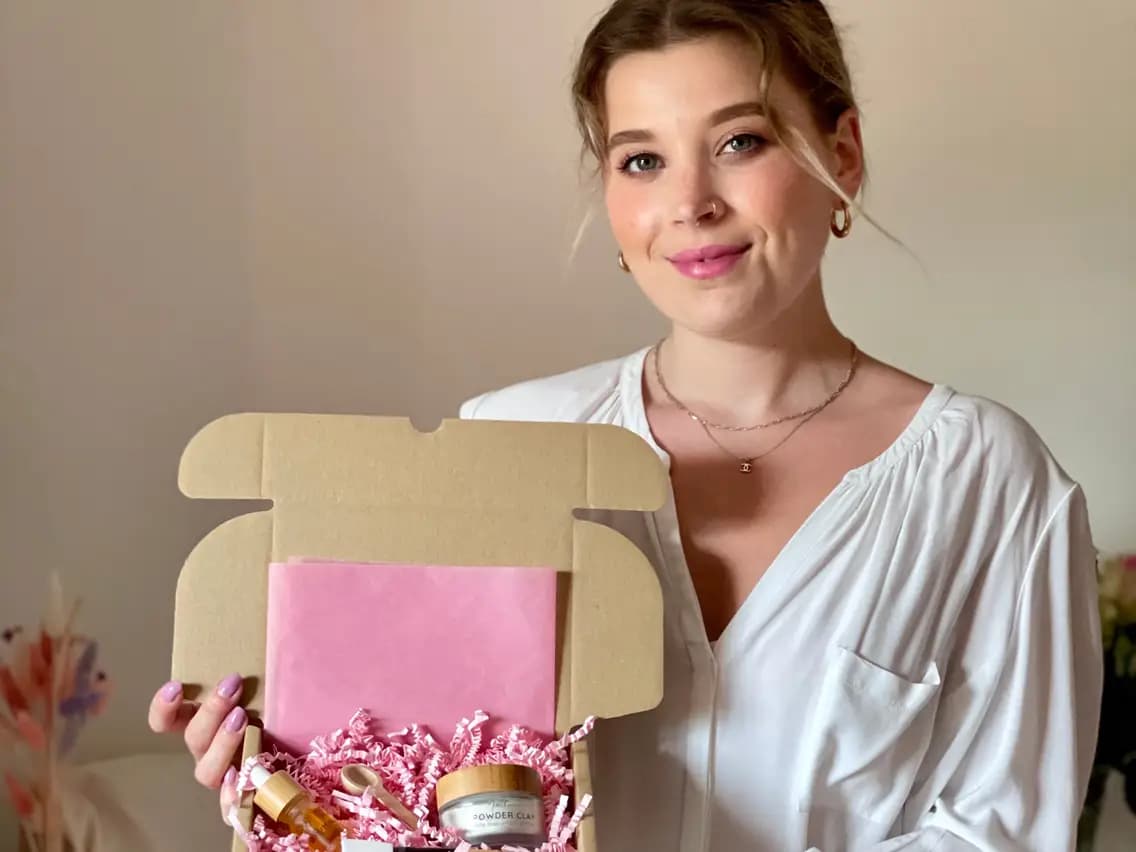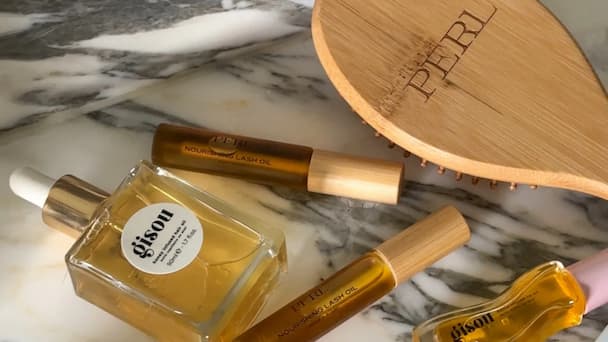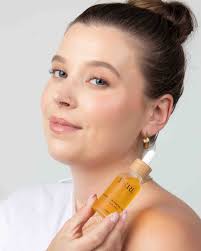PERL Cosmetics began life as a “little lockdown project,” explains its founder Isobel Perl.
Up until the pandemic struck, Isobel had been working for management consultancy KPMG as a project manager but in May that year she lost her job and moved out of her London flat.
Suddenly - like thousands of others - she had the space and time she needed to explore starting her own business from scratch. “I was a complete novice honestly,” she says. “I knew absolutely nothing about the business world. When it comes to building a brand, or knowing who your customers are, I had to learn it all on the go.”
She was certain about a couple of elements though.
The first was that she wanted to focus on skincare, with the brand’s first product designed to plug a gap in the market for a UK version of the Australian pink clay masks that had gone viral online.
The second - with only £1,000 of her own cash to get started - was that social media would be her core selling platform. “I knew I was going to have to harness organic social media,” she explains. “I didn’t have a marketing budget, so I knew that was going to be where I’d market the business.”
But while many entrepreneurs leverage social media once they’re already established, Isobel approached it slightly differently, creating an account and building up a community of followers before she’d even launched her first product.
The idea was to take people on her personal journey of starting a business and in doing so both inspire them and create a deep sense of connection to both her and the brand, all while developing the first product in tandem. “Something that I pride myself on as a business owner is bringing my consumers along on the entire journey, showing them the good, the bad and the ugly of the behind the scenes on social media. I'm a very transparent and authentic business owner, and I think it really helps in fortifying and building that community.”

It isn’t only her professional journey that Isobel is open about either, also talking with followers about her struggles with mental health - and how small rituals such as skincare can help.
This sense of openness is deeply embedded in the brand till this day. “If I'm struggling behind the scenes, and no one knows, then how many other people are struggling behind the scenes, and no one knows? I don't want people to think that I'm so lucky and everything's perfect, because it's far from that. And if I can be open and honest about my struggles with my own mental health and my struggles with growing a business and the ups and downs of that, how many people can I help from posting just one video?”
Out of lockdown - and into the fire
Now with hundreds of thousands of followers across Instagram and TikTok, Isobel has continued to share the ups and downs of entrepreneurship as the business has grown and evolved.
That’s included the transition out of lockdown. It was “incredibly difficult” for the business, as people swapped at-home beauty rituals for salons and spas and left the company’s bestselling pink clay mask less relevant.
Those challenges reached a head in February last year. “I literally ran out of cash,” she admits. “I had to reinvest my own savings into the business and that was when I opened up really honestly [with our online community] about the struggles I was having.”
That video was watched some two million times and provoked a tsunami of support from followers. “Every single person was like; don’t you dare give up.” In what Isobel saw as a further sign that she should keep going the stress of the company’s struggles triggered her OCD, one of the symptoms of which was pulling at her hair and lashes. “Off the back of that I created a product to help me solve that problem - that’s now our bestselling product.”
“That was one of the biggest saving graces of the business, creating a product that just had a really great story behind it, a really good market fit and solved a problem that people were suffering from.” The 12 months since that launch have been “incredibly transformative,” she adds.
“I launched the lash oil in August and we're selling thousands every month, it's insane.” Recently, the team added a hair oil too, “as that’s what our audience wanted to see next and we’re still very much bringing them along in that decision-making piece.”
Earlier this year, the company achieved £50k in revenues in a single month - only a year earlier sales had been at just £2k. The brand now has a team of eight staff and Isobel was even invited to attend a reception for small businesses at Downing Street with then Prime Minister Rishi Sunak.

Weighing up the next move
This rapid growth has led Isobel to consider what may be next for the business as it scales up.
“The next big thing is outsourcing to manufacturers and fulfilment centres because currently that’s all done in-house. Once I make the decision to do that it will then free up a lot of my time as a founder to actually drive the business into exponential growth because we won’t have limited factors on the volume we can produce.”
Then there’s creating a pipeline of new products. “We're still tiny in comparison to other brands, as we've only just launched our fifth product, our focus is bringing out more products that our audience wants to see. We’ve got a cleansing balm that's in development and I think the next product after that will be a lip oil and then we'll reassess for the year after.”
Isobel would also like to organise some in-person brand events to bring some members of her online community together in a room. Earlier this year she was on a GS1 UK hosted beauty panel at the Enterprise Nation Start Up show, where she provided invaluable advice to over 50 highly engaged budding beauty entrepreneurs, showcasing the impact of in person events and the power of founder communities.
And though right now “we’re trying to cope with demand through the website first before we then start introducing new sales channels,” she hasn’t ruled out retail in the future. “I would love to be stocked in retailers, but I think there's a big cost-reward-benefit analysis that I would need to do. Is it more of an ego move versus a sensible business move? There are so many upfront costs - you've got 90-day payment terms, you've got to front all the stock costs up front… For small businesses it can be an investment that doesn’t necessarily pay off.”
She may have started off as a novice but, four years later, Isobel has learned huge amounts about what it takes to start and run a business, lessons that - true to form - she’s more than happy to share with others going on the same journey.

My biggest piece of advice is to not overthink it,” she says. “A lot of people feel like they don't have the right knowledge, or they don't have the right skills, or they don't have enough money. I had none of those things and so I just started incredibly small. I used social media to help me market. I launched one product and I had only 150 units."
Isobel Perl
Fonder of PERL cosmetics
“People may see where PERL is now and think they’d never be able to create that. But they didn’t see PERL in 2020 when it was just me and my social media account and 150 pink clay masks. You don't need a lot of money and you don't need to know what you're doing as long as you are willing to learn. As long as you can do that then you can achieve it.”
